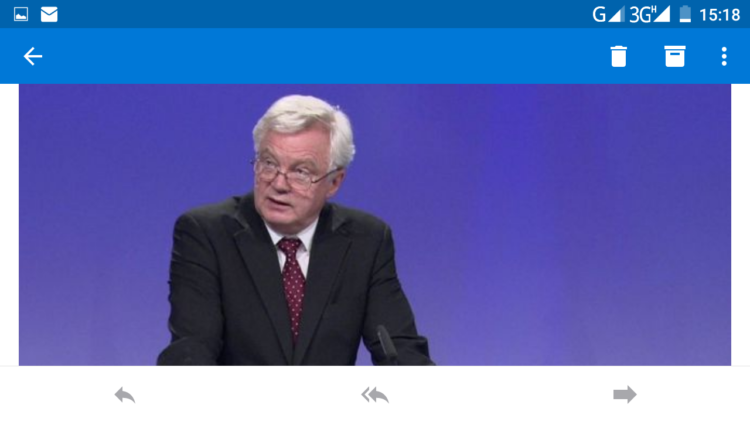By Ben Kerrigan-
EU negotiator, Barnier has stated there are ”big gaps” yet to be filled concerning withdrawal talks between the UK and the EU.
Mr Barnier said the UK had confirmed that EU citizens “will be able to invoke their rights before the UK courts” but the sides had failed to agree over the role of the European Court of Justice in securing those rights.
The European Courts of justice currently play a central role on disputes involving citizens of any of the member States, and the state in question. Under Brexit, British prime minister, Theresa May, does not want Britain bound by rulings of the European Court, which are known for protecting the interests of asylum seekers, and unwanted individuals in Britain, who under European laws can challenge a decision on Human Rights grounds.
Mrs May has indicated that the UK would not be subject to the court’s rulings after Brexit- a decision that does not sit well with EU chiefs. However. Britain’s Brexit secretary, David Davis, has supported the prime ministers stance on the ECJ, making it a sticky point in these talks in which progress has been made, but not sufficient progress.
“Decisive steps forward” have been made in the latest round of UK-EU talks, Brexit Secretary David Davis has said.
Mr Davis was speaking at the end of the first talks since Theresa May’s speech in Italy last week, in which she said the UK wanted a two-year transition.
It could be “weeks or months” an agreement to move to the next stage of talks about future relations, according to Barnier.
The EU says that those talks about the future can only happen when there has been “sufficient progress” on the three issues of what the UK pays to the EU when it leaves, the rights for EU citizens in the UK and UK citizens in the EU, and also the Northern Ireland border.
Mr Barnier acknowledged the rights of EU citizens ” invoke their rights before the UK courts” but disappointed in the factr sides had failed to agree over the role of the European Court of Justice in securing those rights.
Mrs May has indicated that the UK would not be subject to the court’s rulings after Brexit.
Mr Davis echoed her view, saying that the UK will be “a third country outside the European Union [and] it would not be right for this role be performed by the European Court of Justice”.
Mr Barnier says the role of the ECJ was “indispensible” and was “a stumbling block” in the talks. The indispensability or otherwise of the ECJ should be easy to establish, but core to Brexit ideologies is the complete independence of UK judges, denial of which may make a laughing stock of the entire process.
The UK is keen to get on to talking about future relations, and it had been hoped that it might get the go ahead when EU leaders meet next month.
Mr Davis said the prime minister’s speech was intended to “change the dynamic and instil real momentum” into the talks – and he hoped EU negotiators would secure “a mandate to explore” the transition idea.
But Mr Barnier insisted that the transition should be discussed in the second phase of negotiations.
“The prime minister’s speech in Florence has created a new dynamic in our negotiations and we have felt this during the negotiations this week,” the EU’s chief negotiator said.
“We have had a constructive week, yes, but we are not yet there in terms of achieving sufficient progress. Further work is needed in the coming weeks and coming months.
“But we will keep working in a constructive spirit until we reach a deal on the essential principles of the UK’s orderly withdrawal.”
Separately, the European Parliament said that EU leaders should postpone their decision on progress until after their October summit.
A draft resolution, to be voted on next week, said the European Parliament “is of the opinion that in the fourth round of negotiations sufficient progress has not yet been made on citizens’ rights, Ireland and Northern Ireland, and the settlement of the United Kingdom’s financial obligations.”




